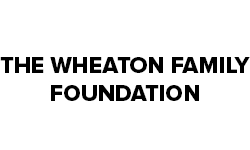Citizenship and Citizenship Education
Citizenship has been the core concept for social studies education since the early 20th century. Saskatchewan curriculum documents state that the “role of social studies education is to help students develop the values and attitudes, knowledge and understanding, and skills and processes necessary to become active and responsible citizens, engaged in the practice of democratic ideals and aware of their capacity to effect change. Social studies supports active and responsible citizenship” (Saskatchewan Curriculum, n.d.-b). Despite this ideal for developing citizenship skills and dispositions, Levine (2012) suggests that current policies and practices of the educational system have focused on developing the worker at the expense of developing the citizen. Explicit teaching through a citizenship lens focuses on the stated role of Saskatchewan social studies curricula. The intent of much citizenship education is to develop a “good” citizen, and that surfaces the question: what is a “good” citizen? Attempts to articulate the answer to this question drive at the root of the models and practices for developing the knowledge, skills, and dispositions of citizenship. Schugurensky (2005) suggests that:
citizenship is a dynamic, contextual, contested and multi-dimensional notion. It is dynamic because its meanings and characteristics have changed throughout history. It is contextual because, at any given time, it has different interpretations and applications in different societies. It is contested because, even in the time and space, there are disagreements about what citizenship is and what it should be. Lastly the term citizenship is multidimensional, because it connotes at least four different dimensions: status, identity, civic virtues and agency. The first relates to issues of membership, the second to issues of feelings of belonging, the third to dispositions, values and behaviors, and the last one to issues of engagement and political efficacy.
Awareness of how privilege for some contributes to marginalization and inequity for others in society is critical in the development of empathetic and ethical teachers. In the past, teachers learned history and social studies from a colonial perspective. Today, teachers know that this perspective impacts how the world is viewed in and out of our classrooms.
The first step to citizenship is an understanding of one’s self as an individual. But there is more to it. We also must understand our country. . . The most significant change in this move was that in Canada, everyone can have a voice. And because of this, I feel that I have an obligation to use my voice. (Rahimi, 2009)
A widely held view of citizenship argues that children and youth are themselves citizens, not merely citizens-in-waiting, and that they need to be engaged by, and actively participate in, their citizenship. In keeping with this view, the Commission believes its educational mandate is to develop citizens who actively investigate and interpret their rights and responsibilities as Canadian citizens and as participants in democracy. Hughes and Sears (2006) note that “there is consensus around across Canada and around the world that best practice in citizenship education is broadly constructivist in character and must engage students in meaningful activities designed to help them make sense of, and develop competence with, civic ideas and practices.” Using recent research and based on the successful OTC design for treaty education, the Commission and its partners commissioned the development of grade-specifi c citizenship education resources for use in Saskatchewan schools. These resources feature opportunities for young citizens to experience inclusive and social justice-oriented citizenship action, beginning in their classrooms and schools, then widening to their community, regional, provincial, national, and global spheres. Through their engagement with explicit, intentional citizenship teaching and learning, young citizens develop understandings of what it means to be a responsible, respectful, and participatory citizen committed to justice in a pluralistic Canadian democracy.
Citizenship Education Defined
Citizenship education has been defined in various ways by groups with differing purposes, audiences, and programs. For the purposes of citizenship education within the Saskatchewan context and curriculum, the following definition has been adopted:
Citizenship education empowers individuals to understand their rights and to be responsible, respectful, and participatory citizens committed to justice in a pluralistic Canadian democracy.
Civics is not synonymous with citizenship. Civics is commonly described as the academic study of the rights and duties of a citizen. Citizenship, however, is described as the outcome of civics study coupled with the personal and lifelong application of the rights and responsibilities that stem from being a citizen in local, regional, national, and global communities. It is intentional and explicit attention to rights, responsibilities, and respect: in particular it stresses that every right is coupled with a corresponding responsibility and that every citizen deserves respect or equal moral consideration.
At the completion of Kindergarten to Grade 12, students should be voting citizens who hold functional knowledge and understanding of the democratic processes, rights, and responsibilities of citizenship, and who understand that action is the singular path toward the protection of democracy from those people, policies and circumstances that seek to undermine or even destroy it.
Essential Citizenship Competencies
Essential Citizenship Competencies (ECCs) are broadly described as those large concepts that are the essence of citizenship skills, knowledge, and dispositions that are deemed necessary for an individual to participate fully as a respectful, responsible citizen.
Using enduring understandings and essential questions to stimulate thinking and to guide the inquiry, teachers will help students uncover the big ideas that need to be considered—and reconsidered—as the inquiry progresses in each unit of study. When taken in its entirety over the course of a student’s Kindergarten to Grade 12 experiences, citizenship education is intended to build five essential citizenship competencies, or five E’s as shown in the chart below:
Enlightened: Historical events have an impact on today’s decisions, and today’s understandings impact our perception and interpretation of historical and current events.
Empowered: Governance and public decision-making reflect rights and responsibilities and promote societal well-being amidst different conceptions of the public good.
Empathetic: Diversity is a strength and should be understood, respected, and affirmed.
Ethical: Canadian citizenship is lived, relational, and experiential, and requires understanding of Aboriginal, treaty, and human rights.
Engaged: Each individual has a place in, and a responsibility to contribute to, an ethical civil society; likewise, government has a reciprocal responsibility to each member of society.
These five ECCs bind together Saskatchewan’s approach to citizenship education; the ECCs are neither exclusive of one another nor hierarchical in order or importance. Rather, they intersect, impact, and bolster one other. While this document articulates each one separately, the five ECCs are meant to be considered as an interwoven fabric of citizenship when fully understood.
The teacher resources are organized to provide opportunities for ever-deepening inquiry until the student reaches a core of understanding of the complexities and connections within a particular ECC as well as among ECCs. In this way, a student develops the skills, knowledge, and capacity to be a respectful, responsible, and participatory citizen committed to justice in a pluralistic Canadian democracy. For a detailed description of the five ECCs, visit the Essential Citizenship Competencies page.
© 2024 Concentus Citizenship Education Foundation Inc. All Rights Reserved.









